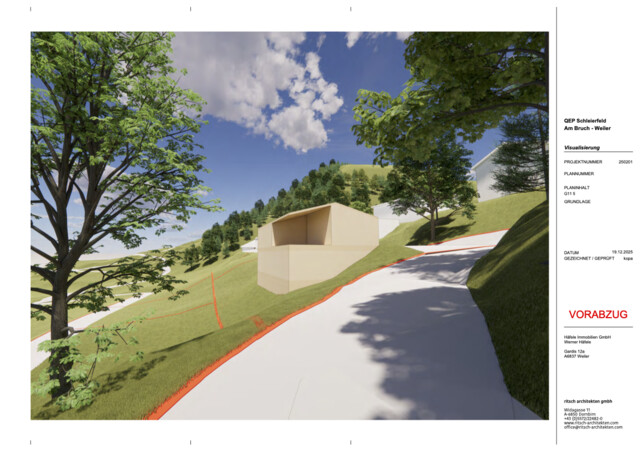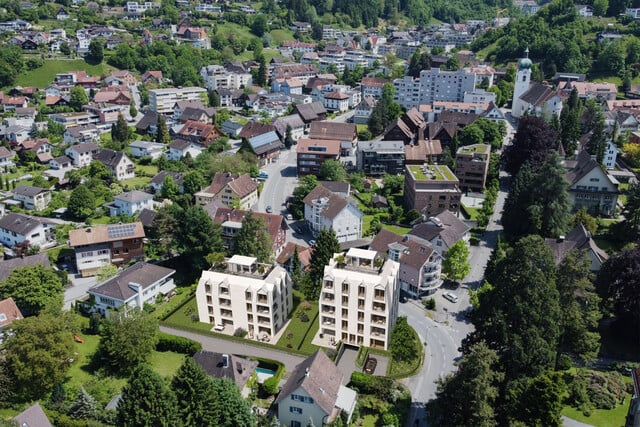Commemoration Day for Roma and Sinti: Wreath Laying in Vienna

On the occasion of the international day of remembrance for Roma and Sinti murdered in the Holocaust, the victims were commemorated on Friday. Around 500,000 members of the ethnic group were systematically killed by the Nazis. The Second President of the National Council, Peter Haubner (ÖVP), President of the Federal Council, Peter Samt (FPÖ), Chairman of the Ethnic Group Advisory Council, Emmerich Gärtner-Horvath, and his deputy, Andreas Sarközi, laid wreaths at the Outer Burgtor at Vienna's Heldenplatz.
Holocaust Remembrance Day for Roma and Sinti Introduced in 2024
August 2 was introduced last year in Austria - as in many other countries - as an official day of remembrance. On this date in 1944, an extermination action took place at Auschwitz concentration camp, where more than 4,000 people were murdered. In Austria, only about ten percent of the ethnic group survived the Nazi regime.
Before 1938, around 12,000 people of the ethnic group lived in Austria, most of them in Burgenland. In Austria, the Nazis established several so-called "Gypsy camps," the largest of which was in Lackenbach, Burgenland. There, 4,000 people were interned under inhumane conditions. 273 of them died in the camp on site. About 2,900 Austrian Roma and Sinti were deported to Auschwitz. In Lackenbach, the victims were also commemorated on Friday with a wreath-laying ceremony. Interior Minister Gerhard Karner (ÖVP) emphasized in the presence of, among others, former Chancellor Franz Vranitzky and the head of the National Fund, Hannah Lessing: "The murder of hundreds of thousands of Roma and Sinti by the criminal regime of the Nazis must serve as a warning to us of where discrimination and racism can lead."
"What Once Began with Prejudices Ended in Camps and Graves"
The Holocaust Remembrance Day was decided by the National Council on January 31, 2023, and was observed for the second time this year. Haubner emphasized how important it is: "What once began with prejudices ended in camps and graves." He also called for solidarity with the ethnic groups: "Anyone who still remains silent today when Roma and Sinti or other minorities are attacked has learned nothing from history. On the day of remembrance, we listen, remember, and pledge never to remain silent." National Council President Walter Rosenkranz (FPÖ), who was not present at the event, also emphasized in a statement: "The national day of remembrance for the Roma and Sinti murdered in the Holocaust is a silent but urgent call to our conscience."
SPÖ Vice Chancellor Andreas Babler emphasized that the official commemoration for the ethnic groups Roma and Sinti is still very young. "We do not turn a blind eye to the hostilities that Rom:nja and Sinti:zze are still often exposed to today," he also recalled the attack in Oberwart, where in 1995 four young men were killed by a pipe bomb from the right-wing extremist Franz Fuchs. If "Never again" is not just to be a phrase, it must also be lived today, especially towards those who were persecuted by National Socialism. Therefore, in the case of the police operation at Peršmanhof, transparency must be quickly ensured. "We owe this to the Austrian Slovenians, but it is also a sign for all ethnic groups that we do not simply accept such treatment of them."
"Remembrance also needs a visible place"
"That the Republic has officially observed this day of remembrance since last year was a long-overdue step to acknowledge Austria's historical responsibility for the persecution and murder of Rom:nja and Sinti:zze during National Socialism. But remembrance also needs a visible place," emphasized the Green spokesperson for commemoration politics Lukas Hammer, who was himself present at the commemoration event in Vienna. He and ethnic group spokesperson Olga Voglauer therefore demand the rapid establishment of the long-planned public monument for the Roma and Sinti persecuted and murdered under the Nazi regime.
"Even today, many Rom*nija and Sinti*zze face hostilities and attacks," emphasized Usnija Buligovic, head of the Volkshilfe program THARA for labor market integration and equal opportunities in a statement. She reminded that after liberation, the survivors were not recognized as victims of Nazi persecution for decades and received little or no compensation for their lost property. Volkshilfe Director Erich Fenninger therefore calls for "enlightenment and better historical processing that highlights cultural achievements and corrects the false attribution of perpetrators to Rom*nija and Sinti*zze." It is time to "counter negative campaigns and stereotypical criminalization and instead draw a respectful and differentiated picture of these communities."
The Catholic Action also warned against attacks on Roma and Sinti, which still occur. Last year and this spring, there were several grave desecrations; discrimination in the workplace and in schools is still widespread. "Every form of anti-Gypsyism is deeply unchristian," said the KAÖ President and President's team.
(APA/Red)
This article has been automatically translated, read the original article here.
Du hast einen Hinweis für uns? Oder einen Insider-Tipp, was bei dir in der Gegend gerade passiert? Dann melde dich bei uns, damit wir darüber berichten können.
Wir gehen allen Hinweisen nach, die wir erhalten. Und damit wir schon einen Vorgeschmack und einen guten Überblick bekommen, freuen wir uns über Fotos, Videos oder Texte. Einfach das Formular unten ausfüllen und schon landet dein Tipp bei uns in der Redaktion.
Alternativ kannst du uns direkt über WhatsApp kontaktieren: Zum WhatsApp Chat
Herzlichen Dank für deine Zusendung.








